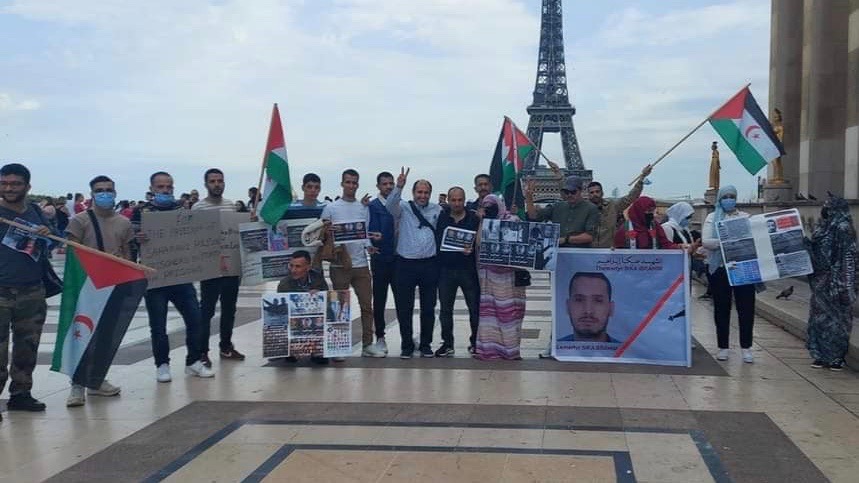Criticizing the United Nation Security Council (UNSC) for its failure to take any concrete measures to force Morocco to conduct the referendum in Western Sahara as mandated in its earlier resolutions, the Collective of Sahrawi Human Rights Defenders (CODESA) demanded immediate steps for the implementation of international law and the UN charter to decolonize the territory.
CODESA released a statement on Thursday, November 11, after UNSC resolution 2602 was adopted on October 29 to extend the mandate of the United Nations Mission for Referendum in Western Sahara (MINURSO) for one more year until October 31, 2022.
CODESA claimed that given Morocco’s refusal to hold the referendum, mere extension of MINURSO’s term makes little sense. The referendum was mandated by UNSC resolution 690 in 1991 as the settlement plan agreed to with the Polisario Front.
Expressing its objections to the mention of a “realistic” and “mutually accepted” resolution of the conflict, CODESA called the UNSC resolution contradictory to the “principles of international law and UN charter,” saying that it compromises the “Sahrawi people’s right to freely choose their political future.”
A balancing act
Noting that the UNSC resolution fails to acknowledge the true status of Western Sahara as an occupied territory waiting to gain the right to self determination, CODESA criticized the statement by calling it an attempt to balance between the occupied and occupier.
The UNSC resolution was adopted with 13 members voting in its favor and two (Russia and Tunisia) abstaining. The text of the resolution, introduced by the US, warned against violations of the ceasefire agreement by both the parties, Morocco and the Polisario Front, and called for unconditional talks between them.
Last year, the US changed its long-held policy and went against the UN recognition of Western Sahara as a “disputed territory” to unilaterally recognize Morocco’s sovereignty over it in exchange for Morocco normalizing its relations with Israel.
The language of the UNSC resolution favors some kind of autonomy for the region as proposed by Morocco in 2007, rather than independence as demanded by the Polisario Front. CODESA’s statement condemned such hints, saying that it contradicts the UN’s position. It also warned that such attempts for a compromise in favor of the occupier would lead to prolonged violence in the region.
CODESA said that the UNSC should not “allow itself to be drawn into the interests of some” of its members “who benefit from instability in the regions of North and West Africa.”
Resumption of war of resistance
Morocco has occupied Western Sahara since 1975 following the Spanish withdrawal from the country. The Polisario Front representing the Sahrawi people rules a part of Western Sahara as the Sahrawi Arab Democratic Republic and is leading the resistance against Morocco’s occupation of the region and exploitation of its natural resources without the consent of the people. A UN-led peace process led to the signing of a settlement plan in 1991 which led to a ceasefire, with the assurance of a referendum under UN observation to decide the fate of the territory. The creation of MINURSO was for that purpose.
Morocco has failed to conduct the referendum even after a span of three decades using various excuses. It has instead carried out numerous assaults on Sahrawi activists from time to time. Following Morocco’s attacks on members of civil society groups protesting against its occupation in Guerguerat in November last year, Polisario Front called for the end of the ceasefire agreement and resumption of the war against the occupation.
Though welcoming the call for talks between Morocco and the Polisario Front in the resolution, CODESA demanded the immediate release of all political prisoners and information on disappeared Sahrawis, along with the lifting of the military siege imposed by Morocco in the region as important gestures of confidence building before the talks.





